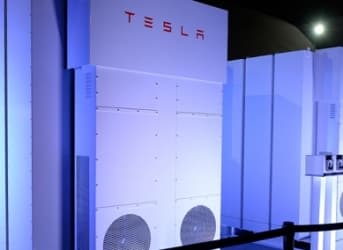As energy storage and new battery technologies continue to gain momentum, an October 2015 report published by Lux Research made a bold prediction. In a report titled, “The Next-Generation Battery Roadmap: Quantifying How Solid-State, Lithium-Sulfur, and Other Batteries Will Emerge After 2020”, analysts from Lux Research predicted that Lithium-based batteries would remain the best bet for energy storage in the years ahead.
The report also said that Lithium-ion batteries would retain its market leadership in the next decade and the next generation battery technologies beyond Lithium-ion would be worth close to $10 billion by the year 2030. “There is a lot of excitement around next generation batteries and some is justified, but we have to be extremely careful about which technologies and what applications because evolving lithium-ion is going to be tough to beat,” said Cosmin Laslau of Lux Research.
Can Tesla impact the battery market?
Overview of global Li-ion battery markets and supply chain
Image Source
A recent report from Navigant Research predicts that the stationary storage market of Li-ion batteries (LIB) would grow from the current $775.4 million to almost $15.8 billion by the year 2024. Although U.S. is still a small player when it comes to LIB production, this is likely to change once Tesla’s upcoming Gigafactory begins its initial production, expected as early as 2017. Related: War Between Saudi Arabia And Iran Could Send Oil Prices To $250
Once this 35 Gigawatt per hour LIB production facility comes online in Sparks, Nevada, it will significantly increase the U.S. market share with respect to the global Li-ion battery production. Tesla’s Gigafactory would be instrumental in manufacturing Li-ion batteries for Tesla’s future battery packs and EVs.
What is the most promising competitor to Lithium-ion?

Lithium-Sulphur is a promising option that offers reduced costs and higher energy density when compared with Lithium-ion batteries. However, Lithium-Sulphur batteries are yet to be commercialized. Sony Corp is said to be developing Lithium-Sulphur batteries and plans to commercialize them by 2020. Related: How Low Oil Prices Are Transforming Global Politics In Startling Ways
According to Nikkie Technology Online, by using Sulphur as an electrode, Sony is working towards expanding the energy density per volume of its existing batteries by around 40 percent to 1000 KW/L from the current 700 KW/L. Sony plans to use this technology to boost battery life of its mobile phones and robotics by almost 40 percent.
In fact, experts even predict that the Lithium-sulphur battery to match the reliability of Lithium-ion batteries in the next ten years from now. Analysts from Lux Research predict that the transportation sector (refer to the above figure) could turn out to be the biggest market for the Lithium-Sulphur battery in the near future, expecting the market to grow from $6 billion in 2030 to $29 billion by the year 2035. On the other hand, solid-state lithium-ion batteries could by that time capture market share in the electronics industry with an estimated market share of 39 percent and earnings close to $12 billion by 2035.
But overreliance on Lithium is not without risk. "If everybody wants to start using lithium-ion batteries for multiple purposes, we don't have enough lithium on the planet to sustain that, so we have to find alternatives," said a researcher from Purdue University. The battery storage technology has a contender that eliminates the use of Lithium: a sodium-ion battery. It is a much cheaper option for Lithium-ion battery as it uses sodium as an electron source rather than Lithium, which is scarce and more expensive. Sodium-ion does have the potential to replace Lithium-ion batteries in the near future, but research is still going on to improve this battery tech, enhance its, energy density while reducing the weight of the battery. Related: Morgan Stanley Joins The $20 Oil Club
Researchers from Oregon State University have found another potential alternative to Lithium based battery, one that is based on Potassium (K-ion battery). "For decades, people have assumed that potassium couldn’t work with graphite or other bulk carbon anodes in a battery. That assumption is incorrect. It's really shocking that no one ever reported on this issue for 83 years,” said a researcher from Oregon State University. With Potassium being 880 times more common than Lithium, K-ion batteries could indeed become a viable alternative to Li-ion batteries for computers, mobile phones, electric cars and micro grid storage in mid-long term. However, a lot depends upon the success of its research and its eventual commercialization.
Conclusion - Lithium is the best bet that we have in battery tech for the moment…
Yes, there are some batteries that eliminate the use of lithium. In all likeliness, Lithium will remain in high demand because there is no other (commercially) viable power storage solution outside of Lithium at the moment. The demand for this commodity is not likely to fall as Tesla’s Elon Musk claims that his upcoming Gigafactory would produce enough lithium ion batteries for half a million electric cars, thereby reducing battery costs by one-third of the current levels. This makes Lithium a long-term bet in the energy storage market.
By Gaurav Agnihotri of Oilprice.com
More Top Reads From Oilprice.com:
- Get Ready for Iran’s Oil: Sanctions Could Be Removed Next Week
- EIA Forecasts Miss the Mark, But Do Better Than Most
- China’s Refiners Report Glut In Distillates




















http://wattstor.com/wattstor-complete-first-uk-installation-of-completely-recyclable-battery/
This battery chemistry is a unique saltwater electrolyte battery technology using abundant, nontoxic materials and modern low cost manufacturing techniques. The water-based chemistry results in a nontoxic and non-combustible product that is safe to handle and environmentally friendly, and is looking to be significantly more affordable than lithium options.